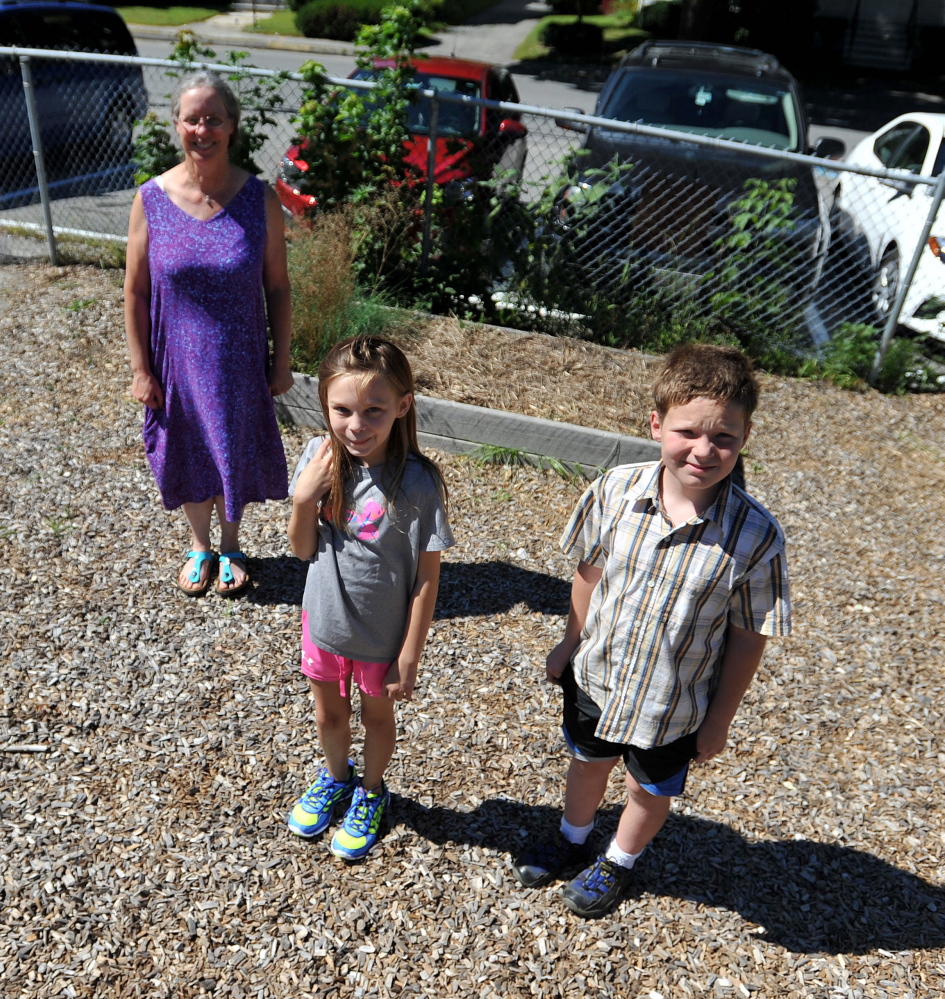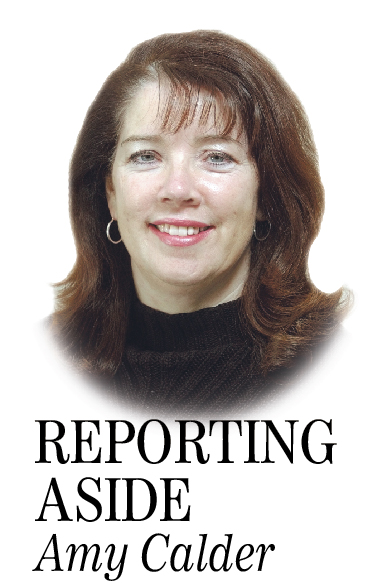The kids in Mary Dunn’s fifth grade class at Albert S. Hall School in Waterville couldn’t wait to harvest the 100 yellow onions that were planted in June outside the school.
Their plan was to give half the onions to the Mid-Maine Homeless Shelter and half to the school kitchen to be used in meals served in the cafeteria.
“We looked at the onions and the tops were all dried,” Dunn recalled. “We said, ‘Tuesday after Labor Day we’ll harvest them,’ and we went out Tuesday and they were all gone — the whole bed.”
The theft of 100 onions from a city school garden may not seem like a big deal to some people, but to these kids, it was huge.
All year long, they learn about gardening and its benefits. They go outside and plant things, such as tomatoes, cucumbers, potatoes and pumpkins, in five raised beds and bring them inside for use in the kitchen, as well as in their math, science and literature curriculum.
Local farmers come to the school and the children engage in taste testing where they get to try broccoli, corn, potatoes, blueberries, apples and grains and decide which is their favorite.
“They vote on what they like the best,” Dunn said. “We try beet greens, kale and spinach. Beet greens always win.”
Dunn and the school staff are serious about healthful eating and work hard to teach the kids about it. When kids eat better, they learn better, according to Dunn.
The school got a $1,000 Agriculture in the Classroom grant which will pay farmers a little bit of money to come into the school for Farm-to-School-Day next spring and allow the school to buy compost, soil and seeds. With a $3,000 Community Transformation Grant the school got, it can buy food processors for the kitchen, child-safe knives for cutting produce and cooking in the classroom and more money for taste testing activities. Inland Hospital gives the school $500 a year for food-related activities and for purchasing things such as hula hoops, jump ropes and other items that get kids moving. Fedco and Johnny’s Selected Seeds have donated seeds and tools, and the students’ artwork actually appeared on Fedco’s seed catalog cover last year.
The children grow seedlings and parents buy them, which helps to boost the school’s gardening program fund. Two master gardeners, as well as a fifth grader from last year and her family, planted the onions in June, and other families and children came and watered, weeded and tended them over the hot summer.
Dunn, who planted sunflowers, nasturtiums and geraniums along the front of the school and keeps a large vegetable garden at home, said she feels particularly bad for those volunteers.
In her classroom Thursday, the children told me they are learning to make pickles.
Hannah Hall, 10, described an experiment the class is doing with cucumbers.
She placed several paper cups containing small cukes in front of me. One cuke was in water, one in salt water, another in vinegar and so on.
“This is a cucumber in a jar of salt and vinegar,” Hannah explained, pointing to one cup. “We’re trying to figure out which one is going to preserve the cucumber the best. We put the cucumbers in the cups this morning, and we’ll look at them tomorrow and write what we see, wait a couple days or a week and compare it to the control cup, which only has a cucumber in it.”
I could tell that Hannah loves learning about these things because she was so enthusiastic in her explanations. She also told me she grows flowers at home with her sister — and loves vegetables.
“My favorite are tomatoes,” she said. “I eat them like apples.”
She said she and her classmates were very sad to discover the onions in their garden were gone, especially because those were onions the homeless shelter will not have.
“I hope that the person that did it actually tells us because if they just came and told us, then they wouldn’t be in trouble,” she said.
Dunn explained that she and her students talk about what it means to make mistakes in life — and indeed, they are a part of life.
“We embrace mistakes, but if it’s a mistake that hurts someone’s feelings, we work to get the kids to own it,” she said. “So if someone were to show up with some onions and say, ‘I’m sorry,’ that would be a huge lesson for these kids. That’s hard to do. That’s brave.”
A 22-year veteran teacher, Dunn, 58, recalled why she launched the gardening program five years ago. She had brought a fresh carrot with its green top to the classroom one day, held it up for all to see and asked the students what it was. No one knew, as they were accustomed to eating tiny carrots that come in plastic bags from the grocery store, according to Dunn.
“So I said, ‘All right, we’re going to start growing plants,’ and that’s how it started. The first thing we grew was basil and we’ve grown it every year because kids love it and the cafeteria gets to put it on the salads and pizzas.”
Amy Calder has been a Morning Sentinel reporter 26 years. Her column appears here Mondays. She may be reached at acalder@centralmaine.com
Send questions/comments to the editors.



